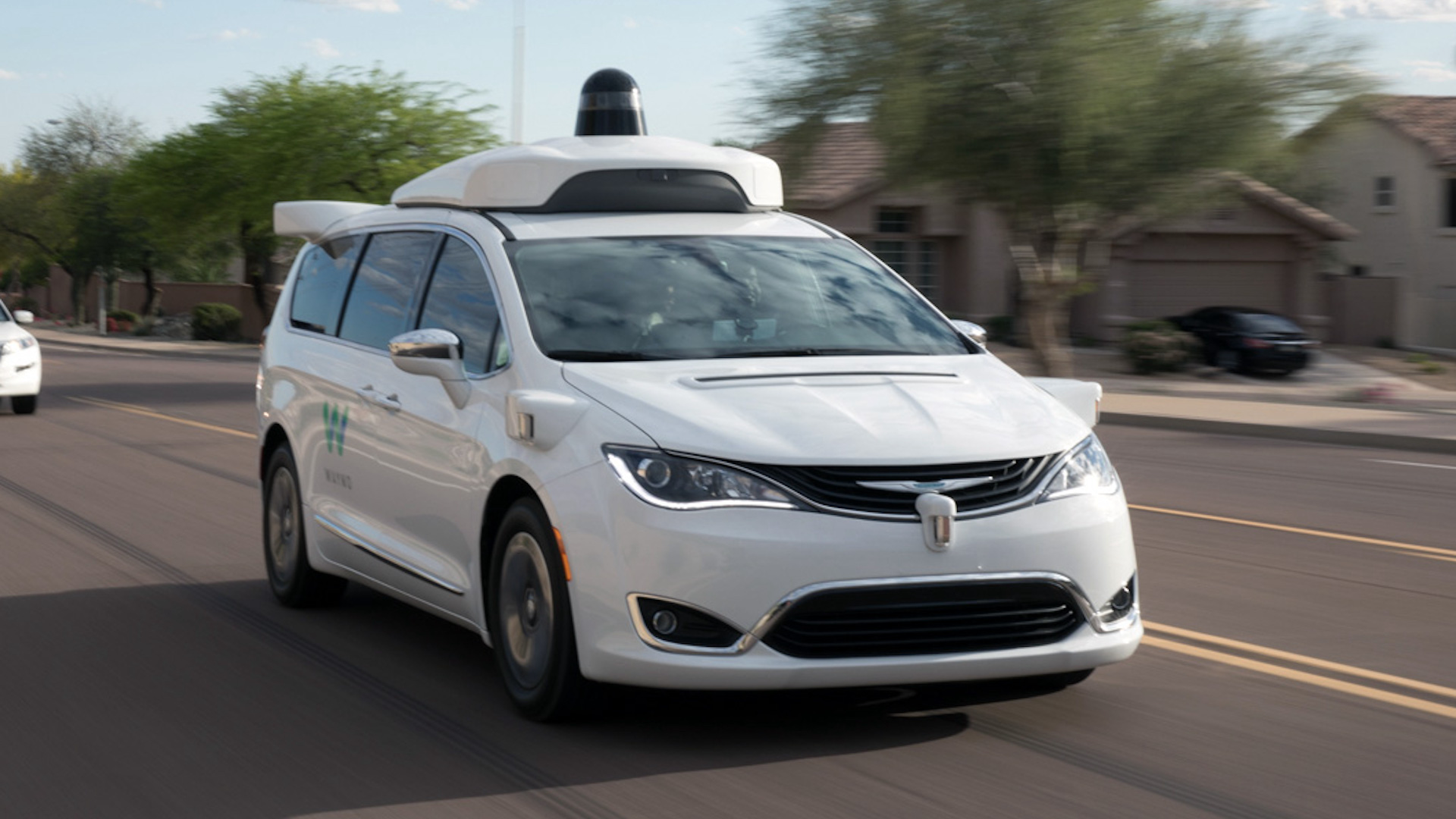

We may earn revenue from the products available on this page and participate in affiliate programs. Learn more ›
Autonomous ride-hailing service Waymo will soon venture out of its comfort zone and begin sending its Lidar-equipped Chrysler Pacifica minivans to New York City. While New Yorkers might start to see one of the five hybrid minivans circling the streets of Manhattan in the near future, they won’t be able to flag one down like they can a Yellow Cab, as Waymo isn’t there to pick up passengers—at least not yet.
Instead, the Google-born spinoff is sending a small fleet to roam the densely-populated city in order to map its complex traffic patterns and better improve its service, it claims.

For Waymo, mapping has always been a critical part of training its self-driving model. Even from the beginning (before Google was in the picture), Waymo’s founders Sebastian Thrun and Anthony Levandowski used car-mounted cameras for initial research on image-based street mapping. And Waymo’s newest mission in New York is no different, though maybe a bit more mature.
New York City is the latest urban sprawl visited by Waymo’s Driver project and will be one of the dozens intricately mapped by the company’s sophisticated cars. However, NYC is fairly unique. Its streets are dense and the city has a diverse range of topographies. But most importantly, it has varying climates with harsh weather in which Waymo’s vehicles can learn how to adapt.
In fact, I asked Waymo about this very topic just last week—how can it feel comfortable expanding its driverless ride-hailing business into areas with inclement weather like heavy rain and snow? As it turns out, the company had a surprise up its sleeve: New York City.

Each vehicle is equipped with a vast sensing suite comprised of cameras (used to detect detail and vision-based objects like road signs), four separate Lidar sensors (to paint a 3D picture of the world), and imaging radar to better measure object velocity. By combining these sensors, Waymo gives its vehicles vision-related superpowers, which can help better identify the environment around them.
And by sending its cars to New York, Waymo will give them a chance to experience how driving in such weather changes the self-driving landscape—well, along with construction, traffic jams, and people who are just walkin’ here.
The data will be cleaned up once collected and then sent through rigorous quality control testing before finally being used to train its proprietary self-driving system.

The vehicles won’t actually be driving themselves. Instead, they will be sent on a mission purely to collect data. Tech Crunch says that each Waymo vehicle will have both a driver behind the steering wheel and a person in the passenger seat to help log information about the trip and provide support to the driver.
Waymo will eventually add its next-generation Jaguar I-Pace vehicles to its fleet in New York, but for now, just expect the Pacificas, which will begin making their way around this week.
Got a tip or question for the author? Contact them directly: rob@thedrive.com
